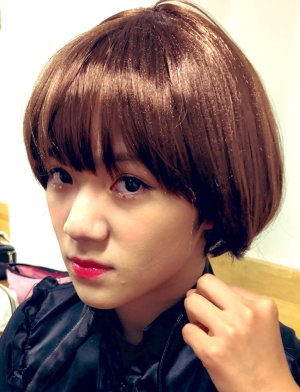My reflections on the reception for this dorama's age-gap story.
Once I completed this dorama I looked at the comments on MDL and I was disappointed to see how people freak out about the relationship between the two characters, reacting at as something nasty that has nothing to do with the present story's intent and message.
Although romances with age gaps, especially if an underage person is involved, must undoubtedly not be treated unconsciously, Chugakusei Nikki is very delicate about how the characters' feelings for each other come to take place, and fully presents the difficulties that the teacher, as the oldest of the two, faces from both herself and others.
Criticism of their rather innocent and contained romance as "gross" thus seems unjustified to me because the series makes an effort to show how their love is entirely based on their wish to support each other, without any moral ill-intent whatsoever. If Kuroiwa were still within childhood that'd be different, but he's aware enough for that not to be the case.
It's particularly beautiful that their attraction emerges from them looking at each other as who they are beyond social positions or obligations, and how despite this the story is received from such a negative perspective makes all the sentiment of rejection which appears in the series very strong and real.
This opinion aside, the dorama wasn't as satisfying to watch as I could've expected because the two main characters' individual feelings aren't explored as closely after the first episodes. On one hand the series wants to arrive to the most mature decisions possible, which is praiseworthy, but on the other it gets stuck on all the obstacles that the characters face. Which is why from the middle onwards Chugakusei Nikki turns into a series of problems one after the other, and is much less engaging to watch.
This tiresome side was partly compensated by side characters that are interestingly well-defined and peculiar. I was especially drawn to Haraguchi for being such a resolute and extremely insightful woman, though I noticed she's not seen in a positive light by all watchers either. To me she was a really a unique character and with her onscreen, unexpected things could happen (and she always sped up everyone's pace and re-steered development, which I appreciated!).
All in all, it was still rewarding to see how the plot endeavoured to give some things to learn from, and especially how it succeeded in making of the events the basis that allowed the characters to grow to become better people.
Although romances with age gaps, especially if an underage person is involved, must undoubtedly not be treated unconsciously, Chugakusei Nikki is very delicate about how the characters' feelings for each other come to take place, and fully presents the difficulties that the teacher, as the oldest of the two, faces from both herself and others.
Criticism of their rather innocent and contained romance as "gross" thus seems unjustified to me because the series makes an effort to show how their love is entirely based on their wish to support each other, without any moral ill-intent whatsoever. If Kuroiwa were still within childhood that'd be different, but he's aware enough for that not to be the case.
It's particularly beautiful that their attraction emerges from them looking at each other as who they are beyond social positions or obligations, and how despite this the story is received from such a negative perspective makes all the sentiment of rejection which appears in the series very strong and real.
This opinion aside, the dorama wasn't as satisfying to watch as I could've expected because the two main characters' individual feelings aren't explored as closely after the first episodes. On one hand the series wants to arrive to the most mature decisions possible, which is praiseworthy, but on the other it gets stuck on all the obstacles that the characters face. Which is why from the middle onwards Chugakusei Nikki turns into a series of problems one after the other, and is much less engaging to watch.
This tiresome side was partly compensated by side characters that are interestingly well-defined and peculiar. I was especially drawn to Haraguchi for being such a resolute and extremely insightful woman, though I noticed she's not seen in a positive light by all watchers either. To me she was a really a unique character and with her onscreen, unexpected things could happen (and she always sped up everyone's pace and re-steered development, which I appreciated!).
All in all, it was still rewarding to see how the plot endeavoured to give some things to learn from, and especially how it succeeded in making of the events the basis that allowed the characters to grow to become better people.
Esta resenha foi útil para você?









